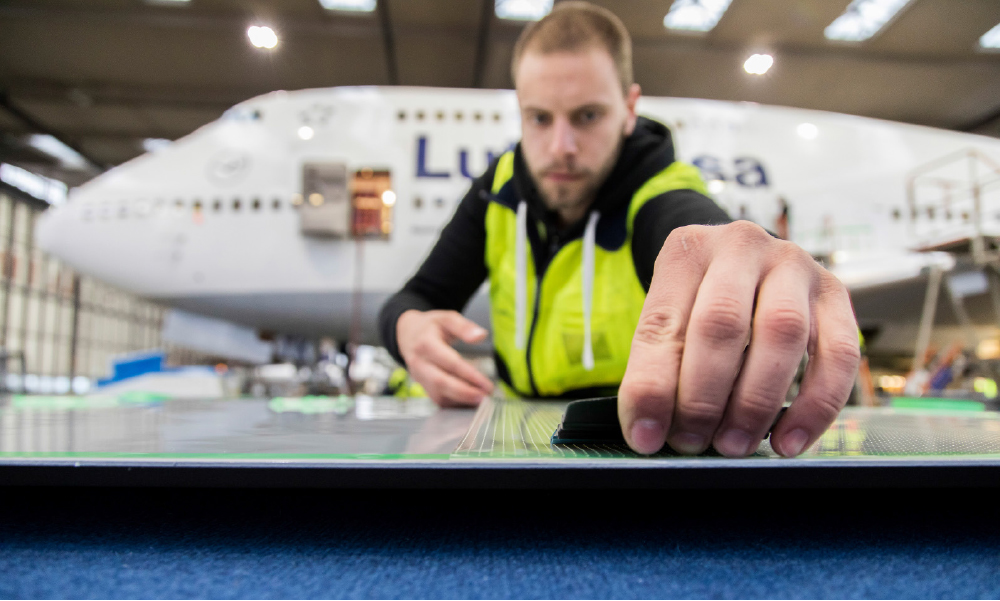


Lufthansa Cargo will equip all Boeing 777 freighters with AeroSHARK starting from 2022. Innovative surface technology from Lufthansa Technik and BASF improves fuel efficiency and helps airlines to reach sustainability targets.
The lower the frictional resistance of an aircraft in the air, the lower the fuel consumption. Using nature as a role model, the aviation industry has been intensively researching ways to reduce aerodynamic drag for many years. Now Lufthansa Technik and BASF have succeeded in making the breakthrough as part of a joint project. AeroSHARK, a surface film that mimics the fine structure of a shark’s skin, is to be rolled out on Lufthansa Cargo’s entire freighter fleet from the beginning of 2022, making the aircraft more economical and reducing emissions.
The surface structure consisting of riblets measuring around 50 micrometers imitates the properties of sharkskin and therefore optimizes the aerodynamics on flow-related parts of the aircraft. This means that less fuel is needed overall. For Lufthansa Cargo’s Boeing 777F freighters, Lufthansa Technik estimates a drag reduction of more than one percent. For the entire fleet of ten aircraft, this translates to annual savings of around 3,700 tons of kerosene and just under 11,700 tons of CO2 emissions, which is the equivalent of 48 individual freight flights from Frankfurt to Shanghai.
The aviation industry has been researching the use of sharkskin for aircraft for many years, albeit often just on a small scale. For the first time at the end of 2019, Lufthansa Technik and BASF fitted almost the entire lower half of a Lufthansa Boeing 747-400's fuselage with 500 square meters of such a jointly developed sharkskin surface and had this modification certified by EASA. This aircraft (registration D-ABTK) subsequently validated the savings potential of the technology on scheduled long-haul services during more than 1,500 flight hours. This provided unequivocal proof that emissions were reduced by around 0.8% thanks to the sharkskin modification. The savings for the Boeing 777F are estimated to be even higher, because the application areas are even larger in this case due to the absence of window rows on a freighter, among other reasons. The savings are validated using a software for fuel consumption analyses developed by Lufthansa Technik, which allows the effectiveness of a wide variety of different aircraft modifications to be demonstrated reliably based on comprehensive data.
Lufthansa Technik and BASF intend to continue developing the new technology consistently to include additional aircraft types and even larger surfaces so that they can support airlines around the globe even more comprehensively in the future in reaching their sustainability goals. Initial model calculations show that use of sharkskin technology at its highest expansion level could reduce CO2 emissions by as much as three percent.